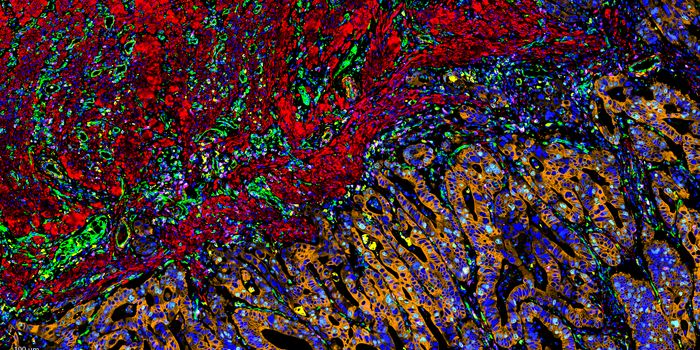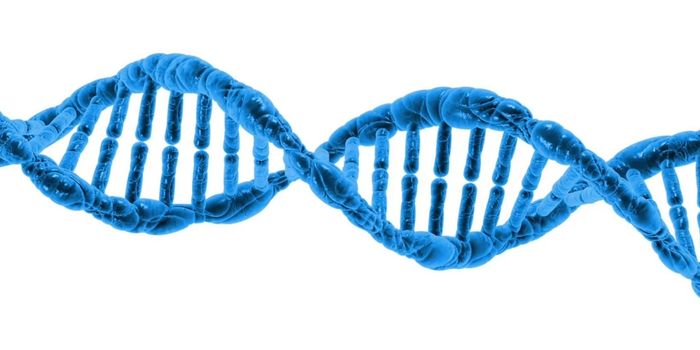How Down Syndrome genes safeguard against solid tumors
Are people with Down syndrome protected from developing solid tumors in some way? So suggests new research published in Scientific Reports, explaining that the same set of genes responsible for poor muscle development and heart valve dysfunction could protect against the growth of solid tumors. The research comes from scientists at Stanley Manne Children's Research Institute from Ann & Robert H. Lurie Children's Hospital of Chicago.
Down syndrome is a congenital genetic disorder caused by trisomy 21 (T21) that is associated with cognitive impairment, muscle hypotonia, heart defects – and, apparently, a low incidence of solid tumor formation.
"Our promising preliminary data carries strong potential for ultimately developing gene-targeted therapies to inhibit solid tumor growth in the general population," says co-lead author Yekaterina Galat. "Our findings may also provide gene targets for therapies aimed at alleviating the clinical abnormalities in people with Down syndrome."
In conducting this study, Galat and co-lead author Mariana Perepitchka made induced pluripotent stem cells from skin samples from people with Down syndrome. The stem cells were then differentiated into endothelial cells and mesodermal cells. It was during this process that Galat and Perepitchka noticed the down-regulated genes that play a role in the abnormal muscle development and heart problems that are associated with the syndrome. But more telling was the role that these down-regulated genes play in solid tumor formation and growth.
They say that the decreased expression of these genes impeded cell movement, slowed proliferation and reduced inflammatory response, ultimately making it hard for solid tumors to form and grow. Upon observing this discovery, the researchers followed-up their finding by running genome-wide analyses from publicly available data from 11,000 patients.
"When we performed genomic analyses comparing mesodermal and endothelial cell lines, we were surprised to find that trisomy 21 impacted gene expression across the entire genome. Furthermore, the decreased expression of the genes we studied was consistent, and the large extent of their down-regulation was notable as well," says Perepitchka. "This significant down-regulation potentially creates conditions that are opposite of what solid tumors would need to take hold. So, in a way, Down syndrome provides us with a non-traditional lens to study cancer development."
"We still need to validate our findings in an animal model," says senior author Vasil Galat, PhD, Director of Human iPS and Stem Cell Core at Manne Research Institute at Lurie Children's and Research Assistant Professor of Pathology at Northwestern University Feinberg School of Medicine. "The potential for gene-targeted therapies is very exciting, especially since it could help individuals born with Down syndrome and the general population battling cancer."
Sources: Scientific Reports, Science Daily









